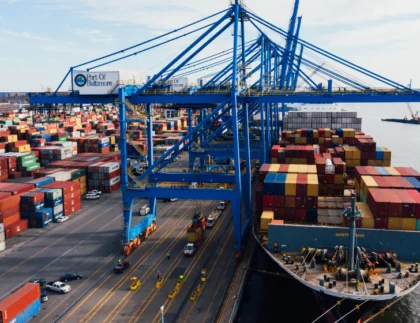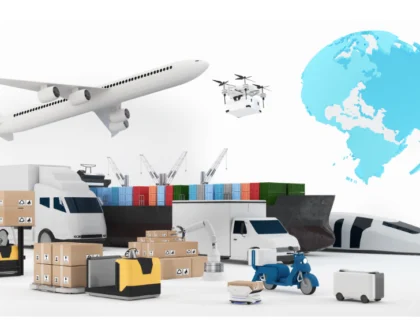
The Challenge of Logistics Labor Shortages
The logistics industry is the lifeline of global commerce, ensuring the smooth movement of goods across borders and within domestic markets. However, a persistent challenge that freight forwarders and logistics companies face is the shortage of skilled labour.
This issue has worsened recently with the increased rate of ageing workers, changes in career interests, and increased complexities of supply chain activities. Tackling logistics labour shortages is filling open positions and implementing creative approaches to recruit, retain, and develop employees while optimizing operational performance.
Contributing Factors to the Logistics Labor Shortage
It is a multi-layered issue where labour shortages occur in logistics. The first, the most prominent aspect, is an ageing workforce working in truck driving positions, warehouse operating jobs, and similar frontline roles. Most people with this experience are nearing retirement, and fewer younger workers enter the profession to fill those spots. In addition, these jobs in logistics are viewed as labour-intensive, not as exciting, and much less desirable compared to other occupations, which offer greater flexibility and use of technology.
In another case, with the rapid rise of e-commerce and global trade, there is high demand for logistics services. In the process of filling this increase, the overstretched workforce tends to face a significant gap between the supply and the demand.
At the same time, the developing nature of logistics, with reliance on technology, automation, and data analytics, has resulted in the necessity of Advanced Fleet Management Solutions for Freight Forwarding, Reducing Costs and Increasing the Efficiency of a technologically savvy workforce. The industry now needs people who can run advanced systems, manage complex supply chains, and adapt to the digital transformation of logistics operations.
Leveraging Technology and Automation
To overcome the challenges, freight forwarders need a holistic approach toward short-term solutions and long-term workforce development strategies. One immediate solution area involves using technology and automation to reduce labour dependency.
In this regard, warehouse management systems, robotics, and automated picking and sorting can significantly enhance productivity and alleviate some pressure on human resources. Autonomous vehicles and drones are also emerging as game-changers in reducing reliance on traditional labour-intensive roles, particularly in last-mile delivery and long-haul transportation.

Upskilling and Training the Workforce
Investing in employee training and upskilling is another critical strategy. As logistics operations increasingly rely on advanced technologies, there is a growing need to equip the freight workforce with the skills required to operate and manage these systems.
Training programs focusing on areas such as data analytics, robotics, and supply chain management can help bridge the skill gap and prepare employees for the demands of modern logistics. Collaborations with educational institutions and industry-specific certifications can further enhance the talent pool, making logistics careers more appealing to young professionals.
Enhancing Work Environments and Benefits
The logistics sector relies on maintaining a positive work environment and offering competitive benefits to retain talent. Turnover is generally high in such sectors, especially when people have to endure heavy labour or work for many hours.
Freight forwarders can better improve working conditions, offer flexible hours, and show career progression lines to address these issues. Competitive wages, comprehensive health benefits, and incentives for performance are also significant factors in attracting and retaining skilled workers. A culture of recognition and appreciation goes a long way in enhancing employee morale and loyalty.
Changing Perception of Logistics Careers
The perception of logistics as a career choice also needs to be transformed. Many young professionals are not aware of the various roles available in the industry, from supply chain analytics to international trade management.
Freight forwarders and logistics companies can spend their marketing budget and partner with schools and universities to promote the dynamic and impactful nature of a career in logistics. Success stories, internships, and career fairs are excellent ways to create interest among younger generations.
Promoting Diversity and Inclusion
This is another window through which logistics labour shortages can be addressed: tapping into underrepresented talent pools, among them women, minorities, and veterans, to ensure the broadening of the industry workforce while encouraging a culture of innovation and inclusion.
Initiatives that promote diversity in the hiring practice, mentorship programs, and employee resource groups help create diversity of work under advanced fleet management solutions for freight forwarding companies that aim to decrease costs and increase efficiency. Encouraging women to continue a career in logistics would handle the gender gap in traditionally more male-dominated roles like truck driving and warehouse operations.
Workforce Management Systems
Technology comes beyond automation and training. Its role is workforce management, which can further benefit freight forwarders in optimizing their schedules, resource allocation, and adherence to labour laws.
Workforce management technology offers real-time workforce performance insights, helping managers pinpoint bottlenecks and find solutions before a problem develops. By streamlining operations and reducing inefficiencies, technology can help companies make the most of their existing workforce while mitigating the impact of labour shortages.

Collaboration and Partnerships
Another effective strategy to help deal with the labour shortage in the industry would be collaboration. Freight forwarders may collaborate with other logistics companies, industry associations, and government agencies to develop initiatives aimed at workforce development. This can create a constant pipeline of skilled talent through apprenticeship programs, grants for skill development, and public-private partnerships. Industry-wide standardization of training and certification efforts can also allow workers to switch roles or companies more readily, creating a more resilient workforce.
International Recruitment Opportunities
Globalization and the interdependent nature of supply chains also provide avenues for confronting labour scarcity through international recruitment. The importance of driving the business forward with talent from other countries can be achieved by inspiring diverse perspectives in freight forwarding operations. Nevertheless, this practice should be approached tactfully to visa policies, cultural assimilation, and ethical means of recruitment for international employees.
Lessons from the Pandemic
The COVID-19 pandemic has been seen to make vulnerabilities in the logistics industry and brought the need for workforce resilience into prominence. Many logistics companies found it difficult to maintain their operations while maintaining employee safety during the crisis. The lessons learnt from this period will inform future strategies for addressing labour shortages.
For instance, flexible work arrangements, enhanced safety protocols, and contingency planning can help companies adapt to disruptions while maintaining workforce stability.

Embracing the Future of Logistics
As far as the future is concerned, innovation and adaptability have to be some of the best ways to address labour shortages in logistics. Autonomous technologies and AI will shape much of what will go on in logistics operations. The implication is that it will not replace human skills but rather open up new opportunities for human-machine collaboration with a workforce that should be technologically sophisticated and adaptable to change.
Conclusion
Logistics labour shortages in the industry form an excellent threat to freight forwarders. On the other hand, they are a challenging opportunity for freight forwarders to transform the sector and build towards sustainable and productive growth. End. Industry-wide and with stakeholders from the outside, the most viable solution in solving short-term and long-term needs is cooperation.
The changes happening within the logistics environment would enable the organizations to prioritize innovation and the welfare of the employees and stand to tackle labour shortages successfully.











